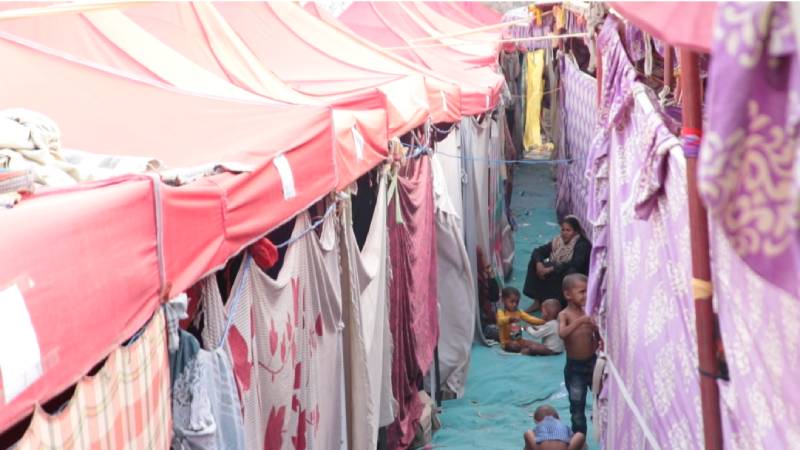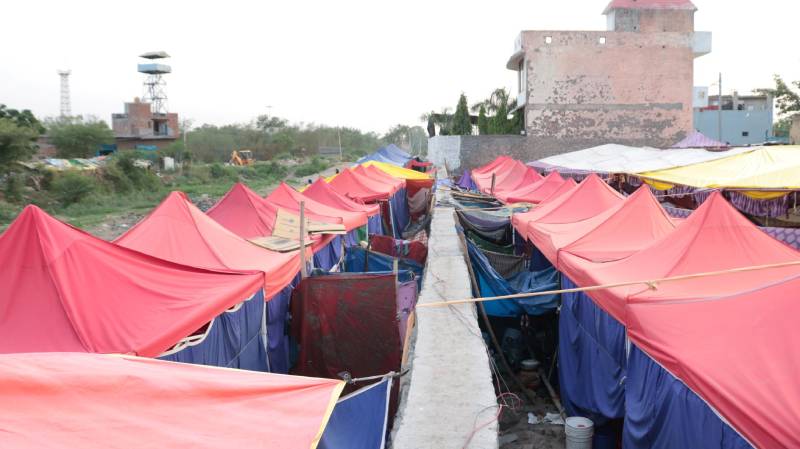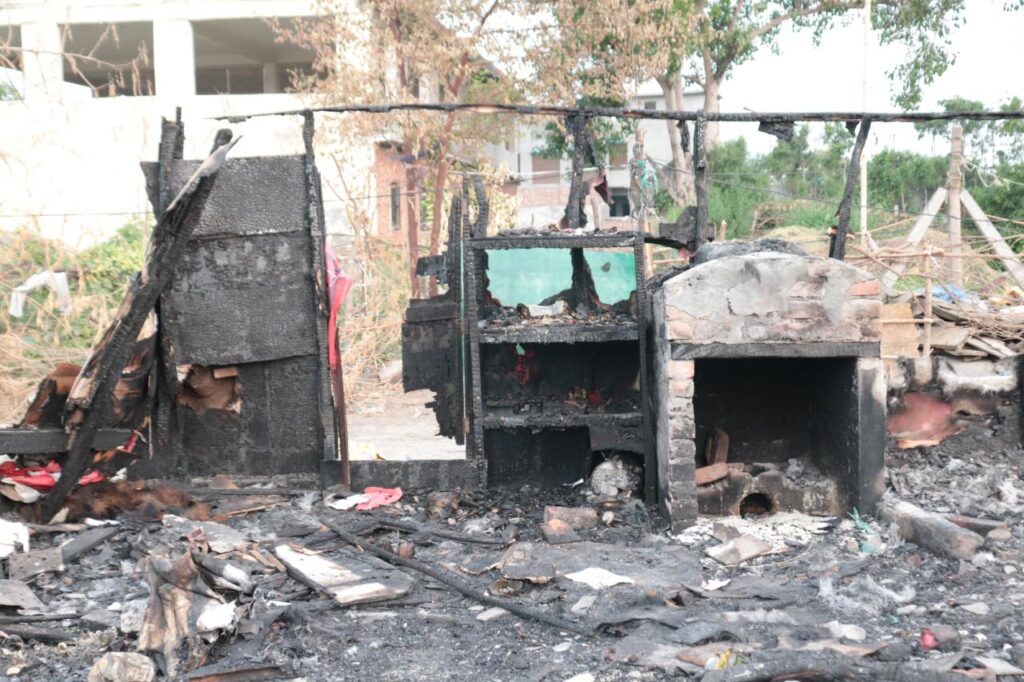World Refugee Day 2021: Rohingyas’ struggle for survival in India
In 2005, 10-year-old Ali Johar, along with his parents, had to flee from their village in Rakhine, a Muslim-majority state on the western coast of Myanmar, as Buddhist hardliners, backed by the Myanmar Army, created havoc across the entire province.
The Johars found shelter in Cox’s Bazar, the nearest large city in neighbouring Bangladesh. There, they began to rebuild their lives, piece by piece and things began to look up as they had quasi settled down, despite all the hardships that come with the life of a refugee from one poor country to another. The only difference being that unlike back home, there weren’t any groups of Buddhists extremists on the look-out for Rohingyas.
But in 2012, as another wave of violence swept across Rakhine, thousands of Rohingyas crossed over into Bangladesh and arrived looking for shelter and safety in Cox’s Bazar. ‘‘This led to a rapid deterioration in the situation in Bangladesh as the government there had begun to tighten the screws on Rohingya refugees. So, we decided that we may be safer in India. But since we did not know anyone in India, I told my parents I would go on alone and if things worked out, they could join me,” recounts Johar to Media India Group.
At that moment, Johar was barely 17. He set out on the perilous journey through Bangladesh and travelled somehow 3000 km on his own crossing over into India in West Bengal and finally making it to New Delhi, where he stayed in one of the earliest camps of Rohingyas. Though he had made it safely to Delhi, the journey since also has not been an easy ride for Johar.
“When I came to India, I was a 17-year-old teenager. I was an unaccompanied minor here. I had to go through a lot of hardship, like I had to work in construction as a labourer and also various informal sectors. Fortunately, I was assisted by Bosco, a charity group, to continue my formal education and UNHCR also helped me with a scholarship. Then I completed my bachelor programme from Delhi University in 2019,” says Johar, who now works as a volunteer, helping the less fortunate Rohingyas living in India.
That number is close to 20,000, says United Nations high Commissioner for Refugees, or at least that’s the number of Rohingyas with an identity card issued by the UN body charged with assisting refugees worldwide.
Life of a Rohingya in India
They live in squalid conditions in small camps in many parts of India. One such settlement is in Kalindi Kunj in south Delhi, along the Yamuna River, that is home to about 50 Rohingya families, most of whom came to Delhi having fled Myanmar in 2012. The living conditions, even nine years on, are pathetic, with families living in tents and access to bare civic facilities like a handful of make-shift toilets and water supply through handpumps.

The Rohingya camp in Kalindi Kunj in south Delhi is home to about 50 families, most of whom came to Delhi having fled Myanmar in 2012 (MIG photos)
Jobs have always been hard to come by for the Rohingyas in India because of their refugee status, forcing them into the informal economy, with almost all of them working as daily wagers in construction or cleaning companies. Not only are these jobs badly paying but offer no security or access to healthcare at all, leaving the Rohingyas at the mercy of some NGOs that have been trying to assist them.
But even this meagre livelihood was entirely disrupted last year when a nationwide lockdown was harshly and suddenly imposed following the outbreak of the pandemic. “It has been difficult for us to get jobs here. Even though my brother was educated, he could not get a proper office job as we had only the UNHCR card, but that was not enough for Indian companies. So, my brother was forced to take up the job of a cleaner and he worked in shops. Somehow, we had managed and were living in a rented room. However, when the lockdown was announced, we were forced out as he lost his job, and we could not afford living over there. So, we had to shift to the camp,” says 17-year-old Zohra, who has been living with her family in New Delhi since 2012.
Paying the price of pandemic
The lockdown cost the Indian economy hundreds of millions of jobs and reversed all the gains of the past decade of lifting over 200 million people out of poverty. But while many Indians still had access to rations and free food being provided by State and Central government, the Rohingyas were entirely forgotten.
“You don’t treat them as your own. So, no services were extended in the beginning. No food was provided, no ration was provided and then they had also lost their source of livelihood. In the initial period they exhausted all their savings and many of them were at the verge of starvation. The pandemic hit them in the worst way it could have hit anyone,” says Fazal Abdali, a lawyer with HRLN, a Delhi-based law firm that has been providing legal assistance to the Rohingyas since 2013.

The Rohingyas are left at the mercy of NGOs for survival (MIG photos)
Abdali says that HRLN filed a case in the High Court seeking relief for the Rohingyas, then some of these refugees were given one-time assistance by the government, a ration kit. However, he says that they forgot about them after that, and the refugees were left to fend for themselves and most of them depended on the goodwill of a few NGOs that had stepped in and provided them essential goods to survive through the lockdown.
While the Rohingyas continue to receive some assistance from the NGOs, they are never too far removed from misery and the threat of starvation, in the absence of opportunities for employment or education, leave alone proper housing and civic amenities like sanitation or tap water.
HRLN says that way back in 2013, it had approached the courts to help the refugees get access to these facilities. “The first case we filed for the refugees after conducting a fact finding on the living conditions of the refugees in Delhi and Haryana. They were living in a very subhuman condition which forced us to file a petition in the Supreme Court and that petition was to provide them basic facilities like access to education, health services, clean drinking water, sanitation, habitation and all that,” says Abdali.
Fight for refugee rights, inch by inch
HRLN says that it has had to wage a hard battle to get Rohingyas, and other refugees, accorded access to facilities that would allow them to lead life with dignity, as guaranteed by the Indian Constitution.
“They have all the basic rights given to the citizens. If you look into the Constitution of India, Article 21 it doesn’t only say Right to Life, it also says with dignity. So that dignity is there. And also, various national legislations. You have right to education, right to employment, you have right to live as a human with all basic facilities, you have right to food. All the basic rights that are there for a citizen of India, are also applicable for the refugees,” he says.
But while the rights may exist on paper, in real life, the refugees have had to fight to get each one of them, inch by inch, over the past several years. “When we filed the 2013 petition, it took five years and several fact findings for the court to acknowledge that yes there is some problem. But the government submitted a report to the court that the refugees had access to all the facilities. But in reality, they had nothing. So, we went back to the court and this time the court appointed two nodal officers to look into it. I must say that the conditions improved but only for a certain period of time,” says Abdali.

The Kalindi Kunj camp lacks basic amenities like water or sanitation (MIG photos)
To make matters worse, at least for the 50-odd families in the Kalindi Kunj settlement where Zohra lives with her family. A few days ago, a mysterious fire burnt the entire camp down to ashes in a matter of hours, destroying every little thing that the refugees had in their shanties. “We could somehow just save our lives, rest we have lost everything. We could not save anything, none of the documents. We could not even save any money from the fire as we had just run for our lives,” says Zohra.
After the fire destroyed all their belongings, the families have been shifted to a small plot of land less than 250 sqm in area that houses nearly 300 people. They have been given shelter under a large cloth tent and the uneven floor covered with thin rugs. Each family has to make do with less than 5 sqm of space, with a thin sheet separating one from the other. The refugees lack access to electricity, water as well as sanitation. As there is no possibility of cooking, it leaves them at the mercy of NGOs that have stepped in to feed them and provide some basic goods to help them survive.
But the conditions in this camp are subhuman and the refugees complain about the way they have been forced to survive. “You can see the state of the hygiene around here. It’s filled with dirt. In such a small space more than 50 families have to live,” says Zohra.
Rohingyas: BJP’s electoral trump card
Though the Indian government officially does not favour or discriminate against any refugee group, over the past four years, the Rohingyas have become a political trump card that the ruling Bharatiya Janata Party uses to rake up hate campaign against them, projecting them as terrorists and threat to national security. The hate campaign reaches a crescendo every time an election is approaching.
“This was seen just before West Bengal assembly elections earlier this year when Rohingyas were targeted in their settlement in Jammu where they had been staying peacefully for many years. Abdali blames toxic hate that is being spread by mainstream media against the Rohingyas, at the best of the far-right wing elements. “Round the clock news channels are playing news against the Rohingyas. Rohingyas were in a very better condition in Jammu earlier, getting jobs, till the time it was propagated in Jammu & Kashmir that these are illegal immigrants taking away our jobs. Then suddenly they stopped getting any work and their livelihood was taken away. Before that they were very well settled, peacefully working as labourers, as cleaners, as daily wagers. There was no problem at all. That is how you propagate and make the host community hate the population who is living there peacefully,” he says.
Many fear that this hate campaign is bound to continue for the foreseeable future as the ruling Bharatiya Janata Party finds itself in a tough spot over the massive mishandling of the second wave of Covid-19. So to distract the attention, they would continue to raise fear and hate about Rohingyas, they say.

A fire burnt the Rohingya camp to ground (MIG photos)
“Over the past year and a half or so, we see that some communal forces have begun a campaign against them, calling them terrorists and extremists and a few days ago they had also organised a protest at this site asking for their deportation from India. As you know, elections in Uttar Pradesh are approaching fast and the plot of land where they had their camp earlier belonged to the UP government’s irrigation department and as they (the BJP) does not have too many issues for the election campaign, they want to pass a message through media. So to appeal to their voters the BJP has been running a campaign against Rohingyas and forcing them out of the camps on their land,” says Asif Muhammad Khan, a former MLA, whose NGO has been providing some essential goods to the Rohingyas.
With elections coming up in Uttar Pradesh, largest and politically most important state in the country, the Rohingyas may yet become a bait for the ruling party, say NGOs. The Rohingyas, themselves persecuted at home, may start feeling the heat of communal hatred even in the ‘safe-haven’ that they believed India to be.









